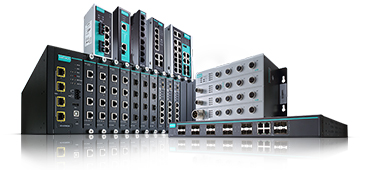🎆Our offices are closed 2/16 for Presidents Day 🎆
An industrial Ethernet network can have more than 1,000 nodes, hundreds of cables and infinite combinations of switches, bridges, routers, network interface cards and servers. When starting a new project, it is not always easy to know which Ethernet switch is the best choice. There are some requirements to consider before narrowing your search for a switch that best suits your application. Following are helpful questions to ask at the beginning of the project.
Think about the level of network management capability required for your application. Unmanaged Ethernet switches are for simple plug-and-play connectivity. They help reduce overall traffic on a LAN, improve connection speeds and reduce errors. Managed switches are for advanced control of your LAN and applications requiring network traffic monitoring or segmentation and a high bandwidth. They usually include software to configure your network and diagnostic ports to monitor LAN traffic. Faulty devices can spew zillions of “runts” (abnormally short Ethernet frames) into your network. Using switches instead of hubs will take care of those problems.
Effective and consistent transmission of data is just as critical as acquiring it. Based on the amount and type of data you will be transmitting, you need to know what speed will accommodate the project. Options include: 10/100Mbps, Gigabit or 10G, or a mix between 10/100Mbps and Gigabit.
In industrial applications, PoE is best where large data transfers and flexible distribution of power are needed. Some common applications include security, RFID/infrared, wireless access points, interconnectivity and accessibility, and power backups.
First, you need to choose between multi-mode or single-mode fiber types and then choose fiber connectors. Some common fiber connectors are SC, ST and LC.
When deciding how many Ethernet ports you need, it is important to consider the future of your project. Does it make sense to select a switch with a few additional ports for future expansion? Does it make sense to select a switch that supports Gigabit speeds for increasing future bandwidth requirements?
Consider the future location of the equipment – what amount of space are you working with and will components need to be protected from industrial debris, vibrations and/or other hazards? Will you be machine-mounting components, placing equipment on the factory or plant floor, or using a cabinet? Machine-mount is expanding quickly because environments in which machine-mount devices can function are growing. But, realizing the full benefits of machine-mount components takes planning.
Ethernet switches for industrial situations do not get the same pampering that office equipment might. You must consider the range of temperatures your equipment will be up against on a daily basis.
Calculate the total power budget required to supply the Ethernet switch and any connected devices. What is the field power input voltage available for the switch?
As an example, and oil and gas application may require Class 1/ Division 2 certification; transportation may require NEMA TSx certifications.
Once you have selected an Ethernet switch for your project, there are a few more questions you should ask. Do you have all the accessories needed to make all the connections? Patch cords, power supplies, cabinets, surge protection, optional mounting hardware and wiring are plausible accessories that may be needed. Lastly, consider if and when you need product samples for proof of concept and full production.
MSI TEC is an expert in industrial networking and IIoT. Contact us for pricing, sales and support.

Be the first to learn about classes, training, webinars, products news and more.
We use only necessary cookies on this website to provide the best user experience and customer service.